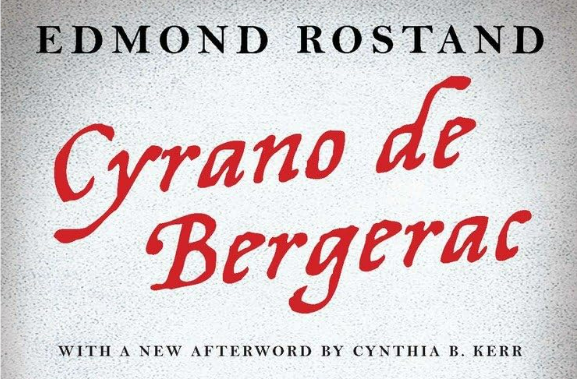Scene 1. IV.
byScene 1. IV. unfolds with a dramatic and electrifying confrontation in the theater, where Cyrano, known for his unparalleled wit and commanding presence, takes control of the situation with authority. The chaos begins when Montfleury, the lead actor, attempts to perform but is immediately interrupted by Cyrano’s booming voice from the audience, demanding that he leave the stage. Despite Montfleury’s nervous attempts to continue, Cyrano escalates his threats, making it clear that he will resort to violence if necessary to enforce his demands. Cyrano’s presence in the crowd is commanding, and his words carry weight, demanding respect from all who are present. His ability to hold the attention of the audience and assert control over the performance is a testament to his power and influence, making him an unmistakable force in the theater.
As the confrontation intensifies, the audience watches with a mix of support and tension as Cyrano presses Montfleury to exit the stage. The lead actor is left with little choice but to obey the threat, retreating from the stage amidst a mixture of mockery and reluctant applause from the audience. Cyrano’s sheer audacity in confronting the actor, coupled with his unflinching resolve, heightens the drama and amplifies the respect he commands. Not content with simply removing Montfleury, Cyrano turns his ire toward the aristocratic onlookers who dare to challenge him. His defiance of the social hierarchy is evident as he challenges anyone who would question his actions, showing that he will not be intimidated, even by those with higher status or influence. Cyrano’s boldness transforms the situation into a spectacle, where his actions command not only the stage but the very social order.
Montfleury’s failed attempt to proceed, despite Cyrano’s unwavering threats, results in his eventual retreat from the stage, symbolizing Cyrano’s dominance and his disdain for mediocrity. This moment is a clear representation of Cyrano’s views on art and performance—he will not tolerate the presence of those who lack skill or integrity. The crowd’s response, a mix of mockery and support, highlights Cyrano’s complex relationship with those around him, as his actions stir both admiration and fear. His disdain for mediocrity is not limited to Montfleury but extends to anyone who challenges his authority or ridicules his actions, including a bore who dares to question Cyrano’s conduct. The mention of Montfleury’s protection by the Duke of Candal only strengthens Cyrano’s resolve, showing that he will not be swayed by powerful figures or the social pressures they exert.
Cyrano’s unshakable confidence is reflected in his response to the Duke’s protection of Montfleury, as he stands his ground, dismissing societal niceties and the implications of his confrontation. His declaration of independence and refusal to bow to societal expectations reveal his unwavering commitment to his own values. This fearless stance is further demonstrated when Cyrano faces off with a young viscount who challenges him. The duel that follows is not merely physical but intellectual, as Cyrano crafts a ballade on the spot, outmatching his opponent in both wit and swordsmanship. This moment solidifies Cyrano’s reputation as not only a skilled fighter but a man of remarkable intellect and creativity, capable of blending the art of words with the precision of combat.
The duel with the young viscount becomes a stunning display of Cyrano’s verbal and physical prowess. With unmatched elegance, Cyrano outshines his opponent, humiliating him before the captivated audience. His victory, marked by applause and admiration, cements Cyrano’s status as an indomitable force within the theater. The audience is left in awe of his sharp wit, commanding presence, and remarkable skill in combat, all of which contribute to his larger-than-life persona. Cyrano’s ability to seamlessly blend intellect and physicality, humor and seriousness, makes him a complex and formidable character. His triumph in this scene is not just a victory over the viscount but a victory over anyone who would dare challenge his superiority, both in wit and in combat.
This chapter, rich in themes of pride, honor, and defiance, showcases Cyrano’s complex character in full force. His ability to command a room with both words and actions sets him apart from others, making him a figure who defies societal expectations and challenges the status quo. Cyrano’s unwavering commitment to his values and his fearless nature, even in the face of powerful adversaries, highlight his role as a true individualist. His actions in this chapter demonstrate not only his strength and skill but also his deep passion for the arts and his belief in the power of integrity and self-expression. Through Cyrano’s bold confrontations, the play continues to explore the tension between personal honor and the expectations of society, setting the stage for further conflict and dramatic revelations.

